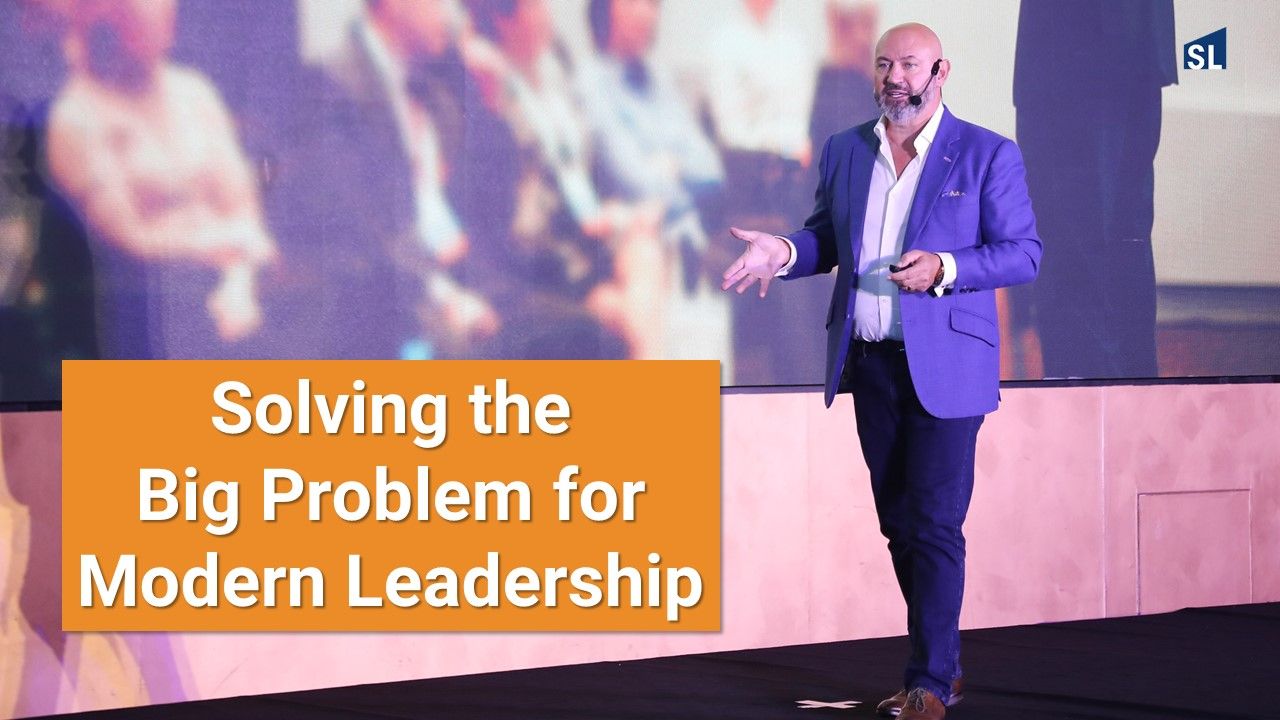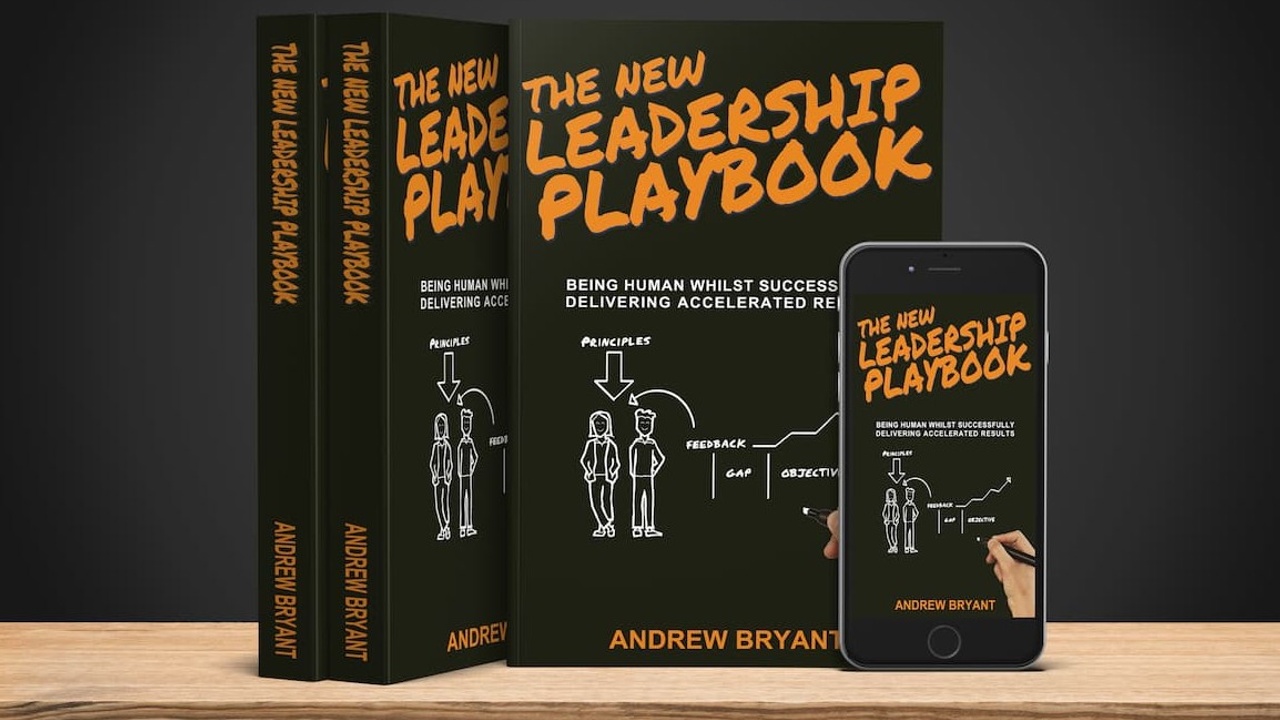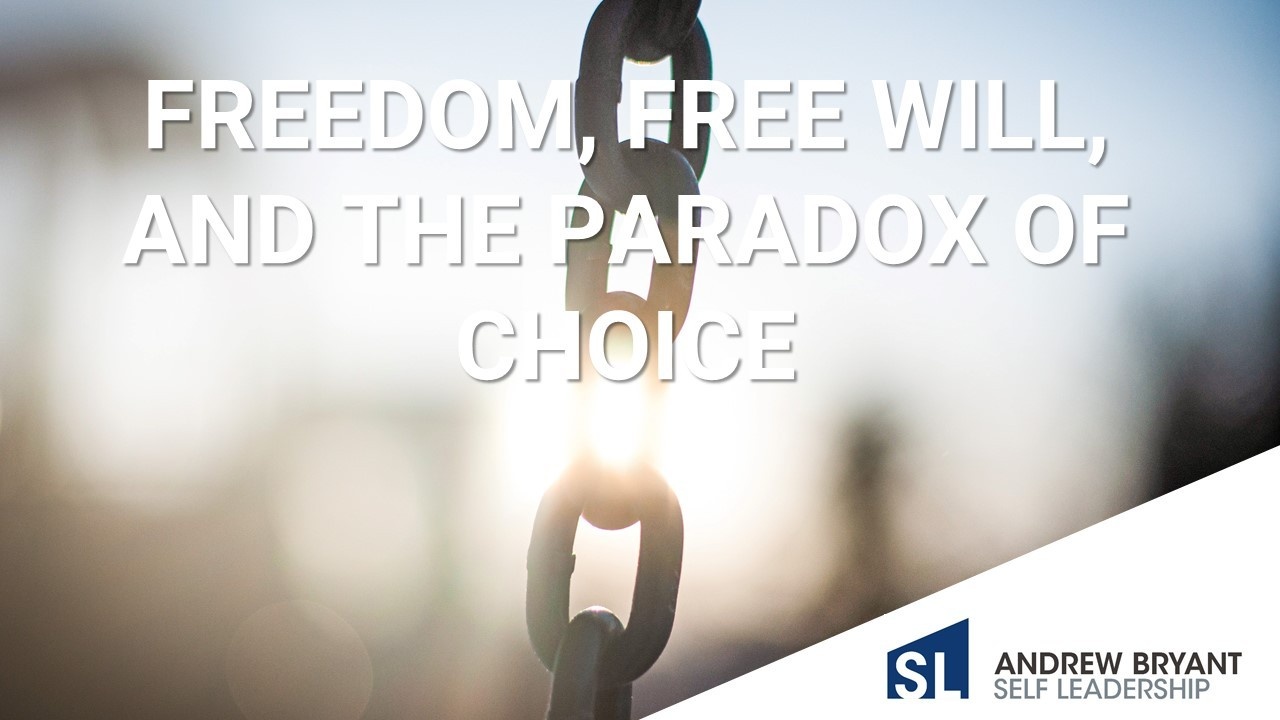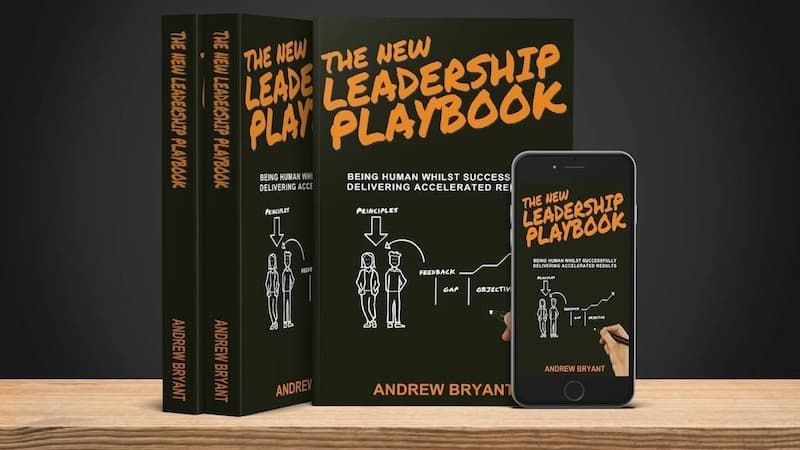Self Leadership and
The New Leadership Playbook
Blog by Andrew Bryant
Solving the Big Problem for Modern Leadership

It can be argued that traditional hierarchical management structures are failing to deliver in terms of employee engagement, retention, creativity, and productivity. In the current environment, self-leadership emerges as a beacon for modern leaders and managers. But what is the big problem and how does adopting a self-leadership approach solve for this?
In the AI era and with the reality of the hybrid workplace, the traditional hierarchical management system is not just outdated; it's a ticking time bomb.
A top-down approach with decisions trickling down, with little or no feedback or innovation from lower-level employees results in rigidity. In an AI-driven world, where rapid adaptation is key, this rigidity can be fatal.
The Big Problem is Trust
In Self Leadership: How to Become a More Success, Efficient, and Effective Leaders from the Inside Out (McGraw-Hill 2012) "Self-leadership is defined as:
"The practice of intentionally influencing your thinking, feeling, and actions to
...
Effective Leadership in a Cancel Culture Era

Effective Leadership has always required embracing ambiguity but today's leaders must face new nuances that are fueled by digital society's collective behavior and opinion. Cancel culture has emerged as a force that can threaten and undermine leadership effectiveness by creating an environment of fear and intolerance of mistakes.
As a response to perceived injustice, cancel culture can hold leaders accountable for their actions. However, when misapplied, it also has the potential to stifle ownership, reason, and learning.
A firm grasp on self-leadership can act as a powerful antidote to this. By developing their self-leadership skills, leaders can navigate the stormy seas of cancel culture, effectively manage their reputation, and maintain their integrity, even under the most intense public scrutiny.
Cancel Culture: A Double-Edged Sword
 Cancel culture is a modern form of ostracism where an individual, often a public figure, is thrust out of social or professional circles – whether ...
Cancel culture is a modern form of ostracism where an individual, often a public figure, is thrust out of social or professional circles – whether ...
The New Leadership Playbook

Being an effective leader or manager in a post-pandemic world goes beyond being good at what you do; it requires balancing empathy with accountability.
The New Leadership Playbook provides a practical guide to being human and understanding people whilst simultaneously driving for, and delivering accelerated results.
It does this by sharing principles that work and plays to achieve success.
This is a book that you will not only read more than once, you will want each of your team to read and apply the tools within it.
Why a Leadership Playbook?
In sports such as American football, set moves are often called a play. The aim is to move the ball down the field, but there are various plays to achieve this. Coaches and players keep a record of these plays in a playbook, so that they can be learned, rehearsed and executed.
When you lead people, you need to understand the principles of leadership and have plays for your team to effectively execute and achieve objectives. The New Leaders...
Freedom, Free Will, and the Paradox of Choice

Americans celebrate their freedom on July 4th, whereas Indians celebrate their freedom from British Rule with an August 15th independence day. A quick web search of National Independence Day reveals a long list of countries that celebrate their freedom from some form of prior government or oppression.
The dictionary defines freedom as, The state of not being imprisoned or enslaved, but it is also:
The power or right to act, speak or think as one wants.
How Free are You?
Reflect, for a moment, on your own freedom to act, speak or think as you want.
You were not free to choose the time and place of your birth. You were not free to choose your parents, their economic status, religious leanings, political affiliation, or educational background. You had little or no freedom in where you went go to school and the ideology of your teachers.
We all imagine we have free will, but so many of our choices and decisions are influenced by things we have no freedom over and are unaware of the in...
Leadership and the Power of ‘AND’

Nigel is sitting in his manager’s office for his annual performance review. It had been a tough year, the effects of the Covid-19 pandemic had decimated his plans for Q1 and Q2, but Nigel had put in a superhuman effort and hit targets in Q3. Nigel was expecting nothing but praise for his efforts, so imagine his surprise when he heard the following,
“You have met your Q3 quota, Nigel, but I have some concerns about how you got there”.
All Nigel heard was, “But we have some concerns.”
The word, ‘but’ has the effect of negating everything that proceeds it.
Imagine you and I met, and I said, “I really like you but…”
You would be on the defensive for criticism, even though I prefaced it with, “I really like you.”
‘But’; is judgmental and is generally perceived as negative. For example, “I want to do this, but I can’t.”
‘But’ often creates the frame of limited choice. For example, “You can eat your cake, but you can’t keep it.”
Being human is a paradox, we are wired to be successful ...
Diversity is Difficult but Doable

How to be a Diversity and Inclusion Game Changer
I recently shared, on Social Media, that I would be the motivational keynote speaker at a large global event. Unfortunately, the best image that showcased 'yours truly' included two other white men. The optics were not great considering that I am an advocate for women's leadership and have signed a pledge to not appear on all-male panels.
There were some women and other ethnicities speaking at the conference and the panel was diverse, but not diverse enough. I called the organizer, a former mentee of mine, and he shared his frustration that he had asked many women, but they refused to speak.
I have faced this same issue before when I organized physical and virtual events. It can lead to weird conversations like,
"We are missing a Black Woman or an Asian man, and we have nobody representing LGBTQ".
In a Perfect World...
In a perfect world, we would have the best person for the job, regardless of ethnicity, gender, age, ableness,...
Inclusive Leadership means Diversity of Thought

I was once working with a CEO to help get his senior leaders to be more open to input from multiple sources, including younger employees.
“Nobody has a monopoly on good ideas”, he said.
“Wow!”, I thought. What a great mantra for diversity, inclusion, leadership, management, and just common sense.
But as Winston Churchill once remarked, “Nothing is as uncommon as common sense”.
Why are Inclusive Leadership and Diversity of Thought not more common?
Well, the human mind is hard-wired to consider ideas and perspectives from our own tribe as superior to those from the outside. This human tendency leads to political partisanship, regardless of the facts, and can lead to a senior leadership team that looks the same and thinks the same. The dangers of this ‘we are right, everybody else is wrong’ mindset is obvious; especially in times of rapid change, when past ways of doing things are losing or have lost their relevancy.
If a closed mindset is the default setting, what must leaders...
Global leadership 5 Competencies

Global leadership is the new standard. When companies were just national, you could make it to the senior level or even the top with a mix of competence and confidence (of course a few good connections could also help).
Today, successful companies are international or global and to be a leader requires something extra. Just doing a good job on your home turf is no longer enough, you have to be visible and you have to have such competencies as impact.
For example, a senior manager in India or Indonesia could be successfully managing thousands of people, and meeting targets, but have no visibility in a global organization. On the flip side, an American or European manager may fail to lead in Asia or South America, because they just don’t understand how to get things done in those cultures.
I was recently having a conversation with a US-based, charismatic, ‘C-level’ executive of a global company, about the direct reports of his peer who worked in Asia. He expressed his frustration that...
Unconscious Bias, Diversity & Decision Making – A Self-Leadership Approach

Unconscious Bias
You are smart, really smart, your amazing brain can make judgments and decisions in milliseconds – unfortunately, you and the rest of us, are often WRONG!
What’s worse, is we don’t know we are wrong, and if it’s pointed out to us we are quick to ‘justify’ our decisions.
Your ability to achieve ‘lightning-fast’ decisions is achieved by your brain taking shortcuts and using pattern recognition. For our ancestors to survive, in a hostile environment, they needed to make quick judgments about friends or foes, food sources or fatal, predators or pets. They made these judgments using, what Daniel Kahneman, author of the book Thinking Fast and Slow, calls System 1 Thinking. System 1 Thinking is fast, instinctive, and emotional as opposed to System 2 Thinking which is slower, more deliberative, analytical, and more logical.
Our brain has not had a ‘firmware upgrade’ to help it operate in a modern, multicultural, and diverse workplace, and so we regularly see the effects of...


